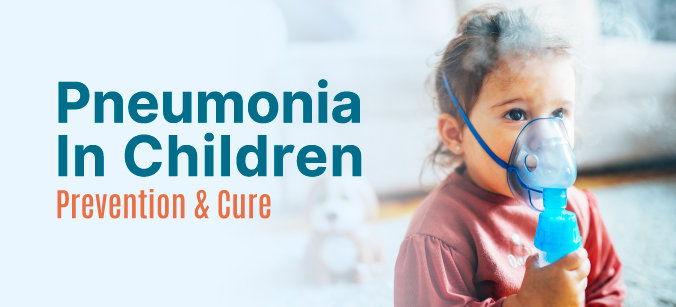- Home
- Blog
- Mom & Baby Care
First Trimester Of Pregnancy: Here’s What To Do And What Not To Do
Mom & Baby Care
First Trimester Of Pregnancy: Here’s What To Do And What Not To Do
By Apollo 24|7, Published on- 15 February 2023, Updated on -06 February 2025
Share this article
0
0 like

The journey of pregnancy can be different for every woman. While some may relish the new changes in the body, others may have to deal with unforeseen hormonal changes. The entire pregnancy is a 40-week journey, which starts with a woman’s last date of period till the birth of their baby. Pregnancy is classified into three trimesters; first, second and third.
The first trimester starts from the 1st week of pregnancy till the 12th week. During this period, the mother and the baby undergo rapid changes. The pregnant woman needs to be extra cautious during this trimester as there is an increased risk of the foetus getting negatively affected by substances such as alcohol, tobacco, drugs, medications, and even some food items. Read to know more about the expectations and precautions a woman should take care of during this trimester.

What to expect in the first trimester of pregnancy?
A pregnant woman may not feel anything on the outside throughout the first trimester, but all of the major body organs and systems of the foetus start forming in this phase.
During the first trimester, the embryo attaches itself to the wall of the womb and gets surrounded by a sac filled with amniotic fluid. This fluid prevents the foetus from any shock or damage. The placenta (the organ that provides nutrition to the baby) also grows during the first trimester. Pregnant women may also experience several other changes in the body during this phase, some of which include:
- Increase in the size of breasts along with tenderness as the mammary glands (milk-forming glands) start preparing for breastfeeding. Women may also notice prominent veins on the surface of the breasts.
- Enlargement and darkening of the areolas (the pigmented region around each breast's nipple). Small white bumps (Montgomery tubercles) may also be noticed over the areolas.
- Urge to urinate more frequently as the uterus grows and puts pressure on the urinary bladder.
- Feeling of nausea and vomiting, commonly known as ‘morning sickness’ due to increased levels of hormones in the body.
- Extreme mood swings, irritability and constant tiredness due to surges in hormone levels.
- Constipation, heartburn, indigestion and gas due to pressure of the growing uterus on the rectum and muscle contraction in the intestines.
- Increased pulse rate as the heart starts working double the time to pump extra blood to the uterus.
Recommended read: Importance of Prenatal Vitamins in the First Trimester
Do's during the first trimester of pregnancy
Things to be kept in mind during the first trimester of pregnancy include:
- Consume a diet filled with ample amounts of protein, carbohydrates, fats, vitamins, minerals and other nutrients to ensure the proper growth and development of the baby.
- Add ginger tea to your diet as it helps combat nausea.
- Eat soft textured meals such as oatmeal or whole wheat pasta during constipation or indigestion.
- Keep snacks such as a slice of fruits, nuts and seeds handy to relieve the cravings.
- Consume prenatal supplements of folic acid, vitamin D and iron to reduce the risk of occurrence of birth defects such as spina bifida (defect in the spinal cord) and anencephaly (incompletely formed brain) in the baby.
- Practice moderate-intensity aerobic activity such as brisk walking, swimming, yoga or pilates for at least 150 minutes a week.
- Brush regularly along with flossing to maintain oral health as pregnant women are susceptible to pregnancy gingivitis (inflammation of the gums).
- Take frequent naps in the day to deal with the exhaustion and hormonal changes in the body.
At the end of the first trimester, the baby would have developed fingers and their heartbeat could be heard on the Doppler monitor or ultrasound machine. By this time, the baby would measure about 2 and a half inches and would weigh about 14 grams.
Don'ts during the first trimester of pregnancy
Things that should be avoided during pregnancy to reduce the risk of possible complications include:
- Do not eat for two. There is a notion that a pregnant woman needs to eat for two, as a baby is growing inside her womb. However, this is not true as no extra calories are required during the first trimester. The need to add calories arises during the second and third trimesters.
- Avoid travelling until necessary as it can worsen the symptoms of morning sickness.
- Do not use saunas or hot tubs; avoid long baths and showers as they can result in overheating (body temperature above 102 degrees Fahrenheit). Overheating can cause neural tube defects in the baby and even miscarriages in some cases.
- Do not indulge in high-intensity exercises such as weight training, heavy lifting and sit-ups, as they can induce premature labour and bleeding.
- Do not consume alcohol as it can result in neural tube defects in the baby.
- Do not get vaccinated for tuberculosis (BCG vaccine), MMR (vaccine for measles, mumps and rubella), polio, typhoid and yellow fever during pregnancy as they increase the risk of infections and birth defects.
- Avoid using chemicals such as ammonia and chlorine as they can induce nausea. Other household chemicals such as paint thinners, cleaners and air fresheners can be toxic for the pregnant woman.
- Stay away from lead-based products (paint or dust), insecticides, pesticides and repellents as their exposure can result in miscarriage, premature delivery and several birth defects.
- Do not get exposed to radiation (x-rays) until extremely necessary.
- Avoid or limit caffeine consumption as it can affect the growth of the foetus negatively.
- Do not consume raw or undercooked meat, liver and seafood as it can cause various infections such as Listeria and toxoplasmosis, which can result in miscarriage and other pregnancy-related complications. Also, avoid fish with high mercury content such as king mackerel, tuna, shark, sea bass, and tilefish.
- Avoid consuming unpasteurised milk or milk products as they may contain infectious bacteria such as Campylobacter, Brucella and Listeria. These bacteria increase the risk of miscarriage, preterm delivery and death of the foetus.
- Do not stop consuming any medication for chronic conditions before consulting the doctor. Similarly, do not take any over-the-counter available medicine or any herbal supplements without consulting the doctor.
Also read:5 Yoga Poses for First Trimester: Benefits & Guide
What to expect during the first prenatal visit?
During the first prenatal (the period before the baby is born) visit the gynaecologist would enquire about the pregnant woman’s personal medical history (record of any chronic medical condition), family medical history (any genetic disorder in the family) and gynaecological history (past pregnancies and menstrual history).
This would be followed by a thorough pelvic examination to determine the size and position of the foetus and the structure of the pelvic bone. The pregnant woman would then undergo a series of blood and urine tests to determine any sexually transmitted infection.
As per Dr Suvarna P, a gynaecologist and obstetrician associated with Apollo 24|7, “your gynaecologist will ask you some relevant questions like period cycle regularity, any pre-existing medical conditions like thyroid, diabetes, and high blood pressure. The doctor may also recommend routine blood tests like blood counts, thyroid check, blood sugar testing, and serology tests like HIV, hepatitis B, and HCV. The doctor would further evaluate for the factors of infertility, prescribe folic acid supplements, discuss about cervical cancer vaccination, and ask the patient to visit again if they miss their periods & test positive for pregnancy.”
The first trimester of pregnancy can be difficult, especially for new mothers as the numerous physical and emotional changes can be tiresome. Pregnant women must ensure they are taking proper nutrition, exercising regularly and getting all the necessary prenatal supplements on time.
If you have more questions,
Medically reviewed by Dr Sonia Bhatt.
Services
Mom & Baby Care
Leave Comment
Services
Recommended for you
.jpg?tr=q-85)
Mom & Baby Care
How to Prevent and Treat Diaper Rash: Everything You Need to Know
Diaper rash is a very common problem that can occur in both infants and toddlers. It can cause a great deal of discomfort for your child, and it can be frustrating trying to figure out how to treat it.

Mom & Baby Care
Pneumonia In Children: Know All About Its Causes, Symptoms And Treatment
Pneumonia is one of the most common infectious diseases affecting children below 5 years of age. It is an acute lung infection that can cause breathing difficulties and other symptoms. To keep children safe, parents need to be aware of the causes, treatment options and preventive measures.

Mom & Baby Care
Five Reasons Why Newborns Need Diapers
Explore the reasons why newborns need diapers. Also, learn about the significance of choosing the right diaper for your baby.
Subscribe
Sign up for our free Health Library Daily Newsletter
Get doctor-approved health tips, news, and more.

